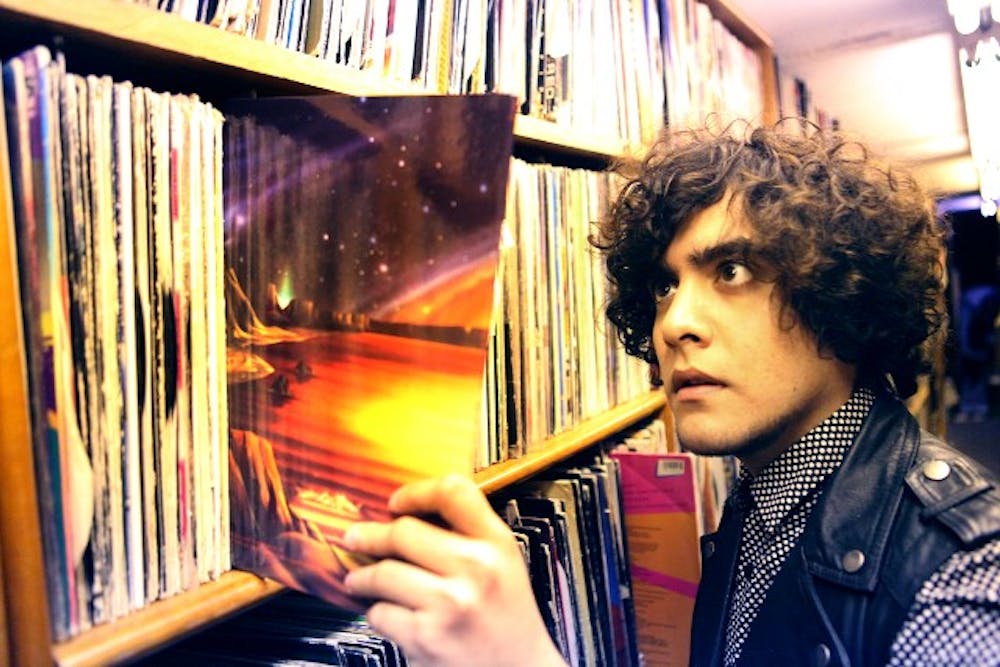Neon Indian’s Alan Palomo is the musical equivalent of Timothy Leary.
Not that we’re implying he does drugs (although “Should’ve Taken Acid With You” is a song title on 2009’s Psychic Chasms). The real parallel lies in the 22 year old’s penchant for sonic experimentation, from hazy synth to retro samples.
Here, Diversions editor Linnie Greene chats with Palomo as he readies for a set at Asheville’s Moogfest and dishes on all things electronic.
Diversions: How did you end up on the bill for Moogfest?
Alan Palomo: I’d actually hit up Moog quite awhile back just in search of some interesting synthesizer power. I’ve always been a big fan of the chronology of Moog and the things they’ve put out. I’d established a dialogue with them awhile back, and they’ve helped with the live setup of our shows. It seemed like a good opportunity to contribute something back to a company that’s shaped a lot of my electronic sensibilities.
Dive: Have you spent any time in Asheville before?
AP: I was actually in Asheville yesterday. I did a little demonstration for the Slim Phatty [synthesizer] that they put together.
Dive: How have Moog’s instruments impacted your work?
AP: I think a lot of my interest in Moog sort of happened — I’d always heard of the brand and seen pictures of these really esoteric looking modulars. The control and knowledge base that must go into being able to program something like that, and much less create something completely unique and planned out — it was interesting watching the Moog factory. It put a lot of those images into context and gave it a narrative.
It’s really interesting how in the nature of my music the people that invent the instruments have as much to do with the music as the artists implementing them. The way in which electronic music has evolved was so much dictated by whatever technology suddenly became available. That alone has been an influence, because in the music I make I like to archive those sounds.



